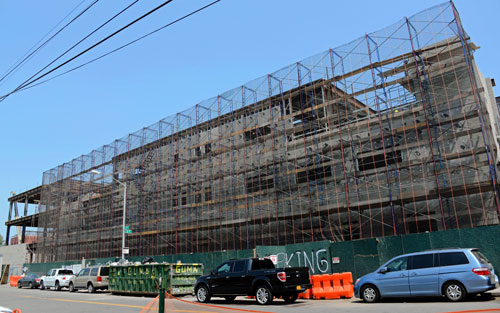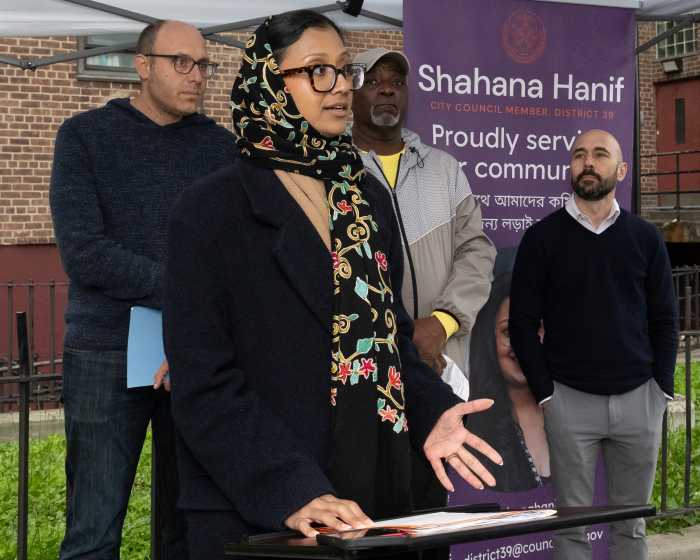A group of Gowanus neighbors angry about the prospect of sharing sidewalk space with ex-prisoners are taking state parole officers to court.
Gowanus United is planning to sue the state this afternoon for failing to notify residents about its plan to move three Downtown parole offices into one three-story facility at the dead-end of an industrial stretch of Second Avenue beside the Gowanus Canal, a lawyer for the activists said. This paper broke news of the parole plan in July, a year after the state inked a deal with the building’s owners, and representatives for the Department of Corrections and Community Supervision did not speak publicly about the move until a September community meeting. State prison officials have since referred inquiries to the Office of General Services, which is responsible for managing state construction projects.
The communication lag shows the state knew the parole complex would be controversial and tried to hush it up, the lawyer said.
“We now know that DOCCS and OGS did nothing to seek community input for over one year after the lease was entered into for this site,” said Steven Russo in a statement. “It is clear that this conduct was an intentional attempt to fly under the radar and slip the siting of this huge facility past the community.”
Residents have been organizing against the under-construction headquarters at 15 Second Ave., between the canal and Sixth Street, since July. The Bloomberg administration signed off on the move, but Councilman Brad Lander (D–Gowanus), who has railed against it, says he got wind of it the same time as the public.
The lawsuit argues that the two departments not only failed to complete an allegedly required environmental study, but did not even look into whether the assessment was necessary, according to a press release by the group.
It also seeks to override a zoning variance signed in 2013 allowing the building to include fewer parking spaces than would normally be required.
“Common sense alone dictates that DOCCS should have done due diligence, but there are also rules and regulations that haven’t been followed, no traffic or transit studies, no plan to deal with the negative impact on business and resident parking,” said Adine Pusey, a member of Gowanus United, in a statement. “This is not the way government is supposed to operate.”
Russo said the goal of the lawsuit is to mandate an environmental review for the site and to force the state to better engage with the community, should the relocation go forward.
The administrator of the local community board and the leader of a neighborhood pro-business group oppose the parole complex on the grounds that it would degrade protections that designate the area beside the Gowanus Canal for industrial use. But most neighbors speaking against the facility at a September meeting said they were uncomfortable with the prospect of former prisoners walking among them. Pusey attempted to downplay that sentiment in her statement.
“While we have welcomed our share of social services here in Gowanus, and we recognize and support the importance of ex-offender reentry, we are left wondering — why the secrecy, and why the rush to force the site here with no community input?” said Pusey in a statement.
The facility is on track to be completed in January and open in April, prison reps said in September.
A spokeswoman from the Office of General Services did not immediately respond to a request for comment.

























